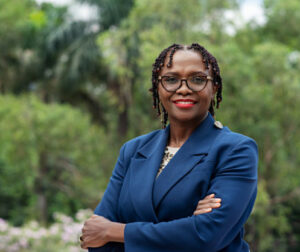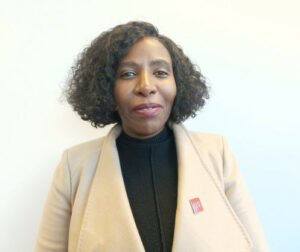Supported by robust advocacy initiatives to achieve policy reform, AHF ensures equitable access to HIV and public health services globally
The AIDS Healthcare Foundation (AHF) (www.AIDSHealth.org) proudly announces a transformative milestone: delivering life-saving HIV prevention, care, and treatment to 2.5 million people across 49 countries, with 1.3 million in 15 African nations (https://apo-opa.co/45zIVFg). This achievement transcends numbers, embodying restored hope, preserved families, and a bold vision for a healthier, equitable world.
AHF’s contribution to the HIV response that has enabled countries like Malawi to see a remarkable increase in life expectancy from 46 to 67 years over a 25-year period is profound. Children who may have been orphaned due to HIV can now grow up with their parents present, and communities are thriving through access to quality care. This story can be told in several countries, and it reflects AHF’s unwavering commitment to transforming lives and achieving global HIV control.
” AHF is tackling STIs, hunger, homelessness, and the global HIV epidemic with relentless resolve “
Founded in 1987 in Los Angeles as the AIDS Hospice Foundation, AHF has grown into the world’s largest HIV/AIDS service organization. With over 8,000 dedicated staff, AHF delivers expert, compassionate, and non-judgmental care to all, regardless of ability to pay. Supported by robust advocacy initiatives to achieve policy reform, AHF ensures equitable access to HIV and public health services globally.
AHF President Michael Weinstein shared, “When we began, I never imagined we’d touch 2.5 million lives. This milestone, born of our staff’s courage and our patients’ trust, demands recognition. As George Bernard Shaw said, ‘You see things; and say, Why? But I dream of things that never were and I say, Why not?’ Our dream—delivering exceptional care to all—has become reality. We’ve stayed true to our principles, proving hope can shine in a challenging world. Yet, our journey continues. AHF is tackling STIs, hunger, homelessness, and the global HIV epidemic with relentless resolve. I’m deeply honored to serve alongside our extraordinary team.”

“When we launched our first global programs in South Africa and Uganda in 2002, serving 100 clients in each country, we could never have fathomed expanding to 13 more African countries and caring for 1.3 million lives across the continent,” said Dr. Penninah Iutung, AHF’s Executive Vice President . “Building on years of advocacy and innovation, AHF Africa now delivers programs that go beyond clinical care to include community-led prevention, equitable access strategies, and pandemic preparedness. These successes reflect the deep collaboration with government and civil society partners that has enabled us to reach the most marginalized, advance equity, and ensure no one is left behind.”

Dr. Nombuso Madonsela, who leads AHF’s largest country program as AHF South Africa Country Program Director, adds, “Being part of this historic milestone is a privilege. AHF South Africa remains steadfast in championing combination prevention, reducing new infections, and ensuring quality service delivery and support for all in our care. Through our Community Power Voices (CPV), we amplify the stories and triumphs of those living with HIV. Ending HIV is not just a dream, it’s a promise we are determined to keep.”
Looking forward, AHF is resolute in expanding access, dismantling barriers, and ensuring no one is left behind in the global fight against HIV. This milestone fuels AHF’s mission to push boundaries, innovate solutions, and build a future where HIV is no longer a threat.







OTHER ARTICLES
Editorial — Prevent, inform, and act for women’s health in Africa
Kenya : Government Prioritises Maternal Health and Strengthens Support for Community Health Promoters
Strengthening pandemic prevention, preparedness, and response capacities in Senegal using the “One Health” approach